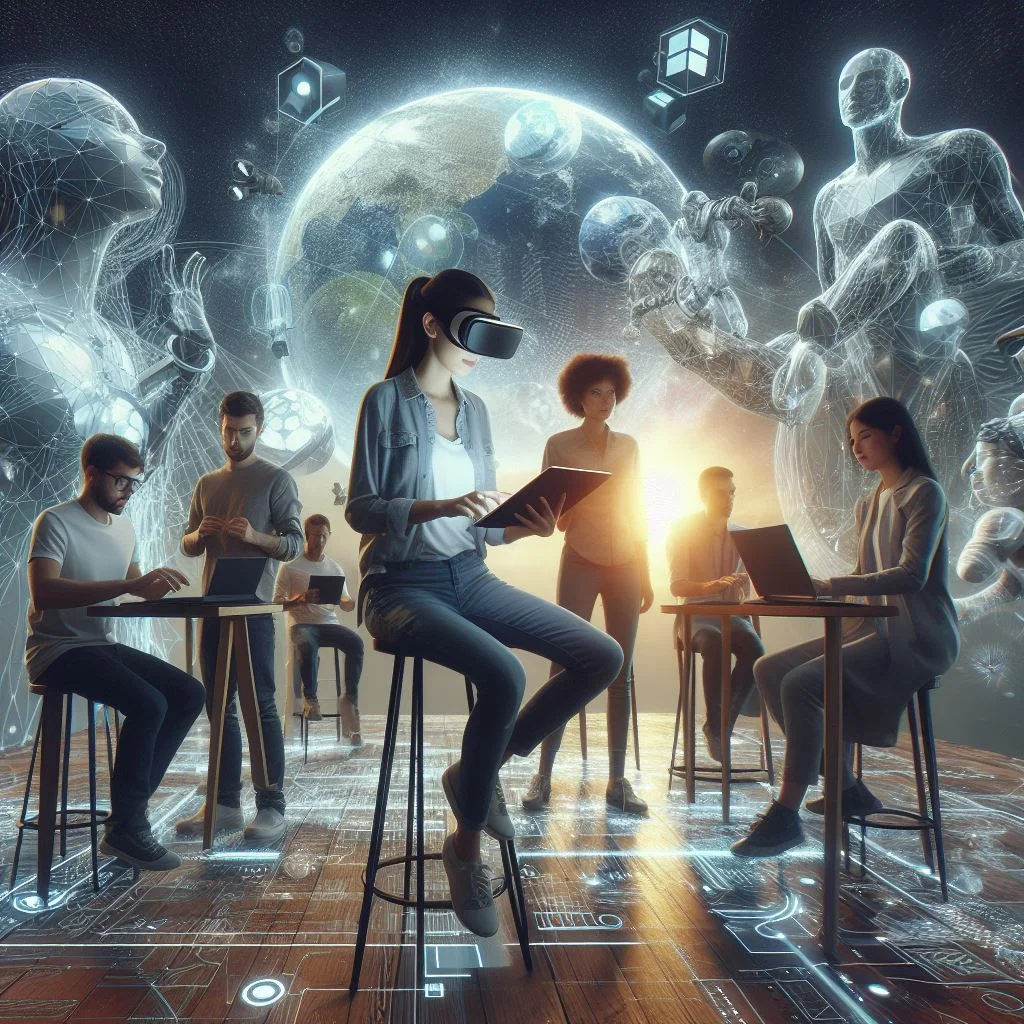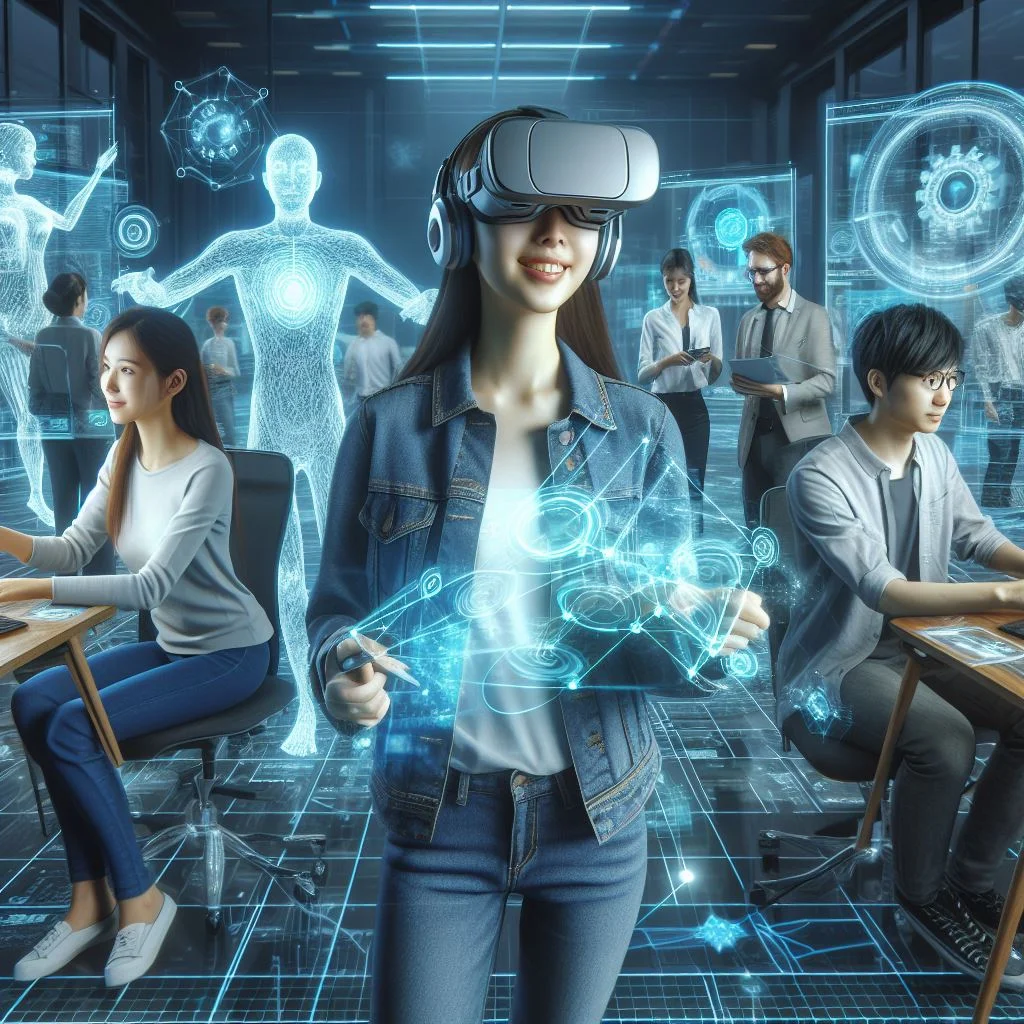In recent years, virtual reality (VR) has undergone remarkable advancements, paving the way for the emergence of the metaverse - a virtual universe where users can interact with each other and digital environments in real-time. As technology continues to evolve, let's delve into the development trends shaping the future of VR and the metaverse.
What is the Metaverse and How is it Different from Virtual Reality?
The metaverse refers to a collective virtual shared space, created by the convergence of virtually enhanced physical reality and physically persistent virtual reality. It goes beyond traditional virtual reality experiences by offering a persistent and immersive digital environment where users can engage in various activities, socialize, and conduct business transactions.

Key Trends in Metaverse Development:
- Convergence of VR and AR: Developers are increasingly integrating virtual reality and augmented reality (AR) technologies to create seamless and immersive metaverse experiences.
- Blockchain Integration: The use of blockchain technology in the metaverse is facilitating secure transactions, digital asset ownership, and the creation of decentralized virtual economies.
- Social Interaction: Enhanced social interaction capabilities, including realistic avatars, voice chat, and virtual events, are making the metaverse a vibrant and engaging space for communication and collaboration.
- Virtual Commerce: The metaverse is becoming a hub for virtual commerce, with users buying and selling digital assets, virtual goods, and even real estate within virtual environments.
- Cross-Platform Integration: Developers are working to enable cross-platform compatibility, allowing users to access the metaverse from various devices such as VR headsets, smartphones, and PCs.
- AI-driven Environments: Artificial intelligence (AI) is being leveraged to create dynamic and responsive virtual environments within the metaverse, enhancing realism and immersion.
- Content Creation Tools: User-friendly content creation tools are empowering individuals and businesses to contribute to the metaverse by designing and building their virtual spaces and experiences.
- Health and Wellness Applications: Virtual reality is being utilized for health and wellness applications within the metaverse, including virtual therapy sessions, mindfulness experiences, and fitness programs.
- Education and Training: The metaverse is revolutionizing education and training by providing immersive learning experiences, simulations, and virtual classrooms accessible from anywhere in the world.
- Security and Privacy: As the metaverse grows, ensuring security and privacy measures will be crucial to protect users' data, identities, and digital assets.

How Can Businesses Leverage the Metaverse for Marketing?
Businesses can capitalize on the metaverse's immersive environment to create unique marketing experiences. They can host virtual events, product launches, and branded experiences within the metaverse to engage with consumers in innovative ways. Additionally, businesses can create virtual storefronts and interactive advertisements to showcase their products and services. Leveraging user data from the metaverse can also enable businesses to personalize marketing campaigns and target specific demographics effectively.
As we navigate the exciting frontier of the metaverse, it's clear that virtual reality technology will continue to evolve, shaping new possibilities for communication, commerce, and creativity. By staying informed about the latest development trends, we can better understand and harness the potential of this transformative digital realm.